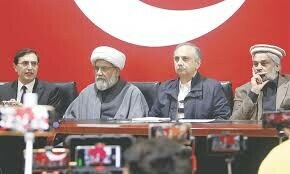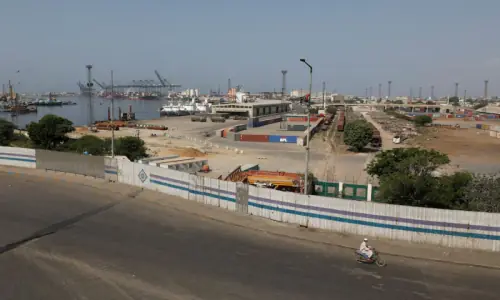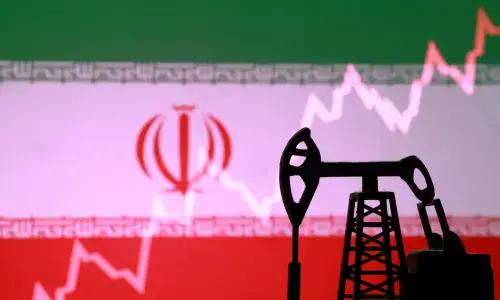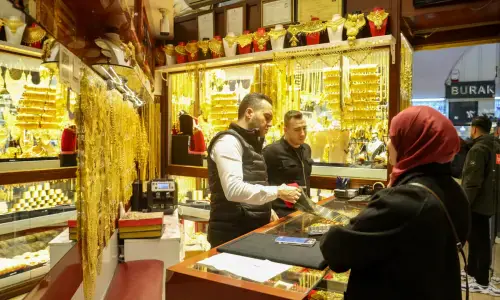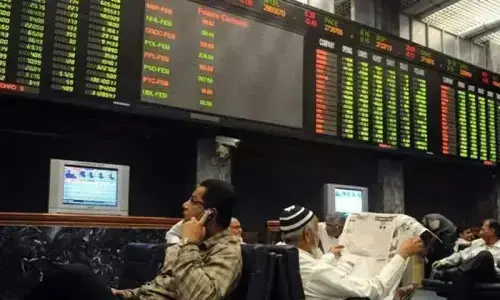THE court verdict is in and it seems to have gone overwhelmingly in PTI’s favour; most of the judges felt the party continues to exist as an entity and that it was entitled to its reserved seats in parliament.
It’s a legal victory, and that comes with its own sense of a ‘moral’ victory. However, it is perhaps too soon to take all this as an indication of any change in the larger political context, where the friction between the party and establishment continues unabated. Nonetheless, the verdict points to a number of larger and smaller trends in politics.
Weakening authority: First, the verdict highlights the weakening authority of the establishment, where its ability to win over other sections of society during times of civil-military conflicts is now facing what appear to be unprecedented limitations. In the context of the changing demographics and a worsening economy, the idea that only one institution can bring stability to the country is proving harder and harder to ‘sell’; as a result, fewer and fewer are willing to back many decisions.
The pushback from the judiciary can be seen in this context. Which, of course, in itself gained strength from the public opinion which was expressed on Feb 8.
We face institutions and men in charge who are still not ready to heed the message.
However, this weakening authority is running parallel to the weakening of political parties. The establishment is now in a position to impose the ‘hybrid model’ as it has come to be called, where mainstream political parties with public support are now willing to become part of a ruling arrangement in which the latter continues to dominate and call the shots. This is an arrangement which is now seen to preclude the need for direct intervention.
However, the docility of the politicians is not proving enough, because a) there are always politicians outside the fold as well as pushback from others such as the judiciary; and b) governance has simply become even more complex and fragmented, and hence, rather ineffective.
That the establishment is aware of the weakening authority here can be seen in the ‘warnings’ being issued; commentators who can comfortably claim to know what the inhabitants of the city next to Islamabad are thinking keep pointing out that if the robed ones continue to assert their free will, then the neighbours could be ‘forced’ to inhabit Constitution Avenue.
Now, of course, not enough people in Pakistan have a sense of humour. Because if they did, someone could have pointed out to these learned commentators that if everyone is supposed to behave as if Constitution Avenue is occupied, then why fear its actual occupation. If it walks like a duck and it quacks like a duck, how much scarier can the duck be when it finally shows up?
But the warnings keep being issued, because as a nation, we don’t believe in acknowledging mistakes and changing tactics.
Post Chaudhry judiciary: However, this court verdict also highlights a changing judiciary and the frictions within. As the memory of the Iftikhar Chaudhry restoration grows distant, chief justices, especially of the Supreme Court, are finding it more and more difficult to assert unquestioned authority over the rest of their colleagues.
The friction reached a new height during the time of the Bandial court. However, even then, there were predictions that the matter would not settle down with the departure of the then chief justice. And so it turned out to be.
Despite considerable efforts to celebrate the golden period of hum saath saath hain, which began in October 2023, it wasn’t long before we wandered on to the sets of a Clint Eastwood western. Even the departure of two senior judges did not quieten the dissent. And the letter writing and leaks which had become the mark of the Bandial court didn’t stop. Given the culture of power in this land of the pure, consensual decision-making does not come easy to anyone in positions of power. And this has proved no different for the Isa court.
That the discomfort was present, especially with regard to certain political cases, was evident.
If earlier there was a trickle, the PTI symbol case turned it into a deluge. And in the point in between was the letter of the Islamabad High Court six.
And it wasn’t entirely due to the treatment meted out to the PTI; more was at play.
The rather public pronouncements about a constitutional amendment which would tweak the judiciary was the unspoken reason for the discomfort within. Government ministers and others were about as loud as the acting in a Sanjay Leela Bhansali film in making their intentions public; and what they didn’t officially acknowledge was made public through ‘reporting’ and ‘leaks’. It included changing the chief justice’s tenure; the selection process as well as giving the executive powers to move judges around, from, say, Lahore to Quetta, or Islamabad to Karachi.
At the end of the day, many might see this as motivating the court to decide as it did on Friday. The reserved seats for the PTI have, for the moment, made the constitutional amendment rather difficult, if not impossible.
However, this might not be the end of the matter, because we face institutions and men in charge who are still not ready to heed the message, any message. The recent announcement by the government about banning the PTI is a case in point.
Postscript: There is much talk, or rather, criticism of judicial activism, which is how some are describing the judgement. And the description and criticism are not entirely misplaced. The problem is that as long as an attempt is being made to manipulate the judiciary to achieve political objectives, so, too, will judicial activism be needed to ‘set right’ perceived wrongs. This is as true of Friday’s decision as it is of the lifetime disqualifications and their undoing. And once individuals are encouraged to intervene, they also tend to misuse it. But these judicial interventions will not end in a vacuum. The original sin lies elsewhere.
The writer is a journalist.
Published in Dawn, July 16th, 2024



